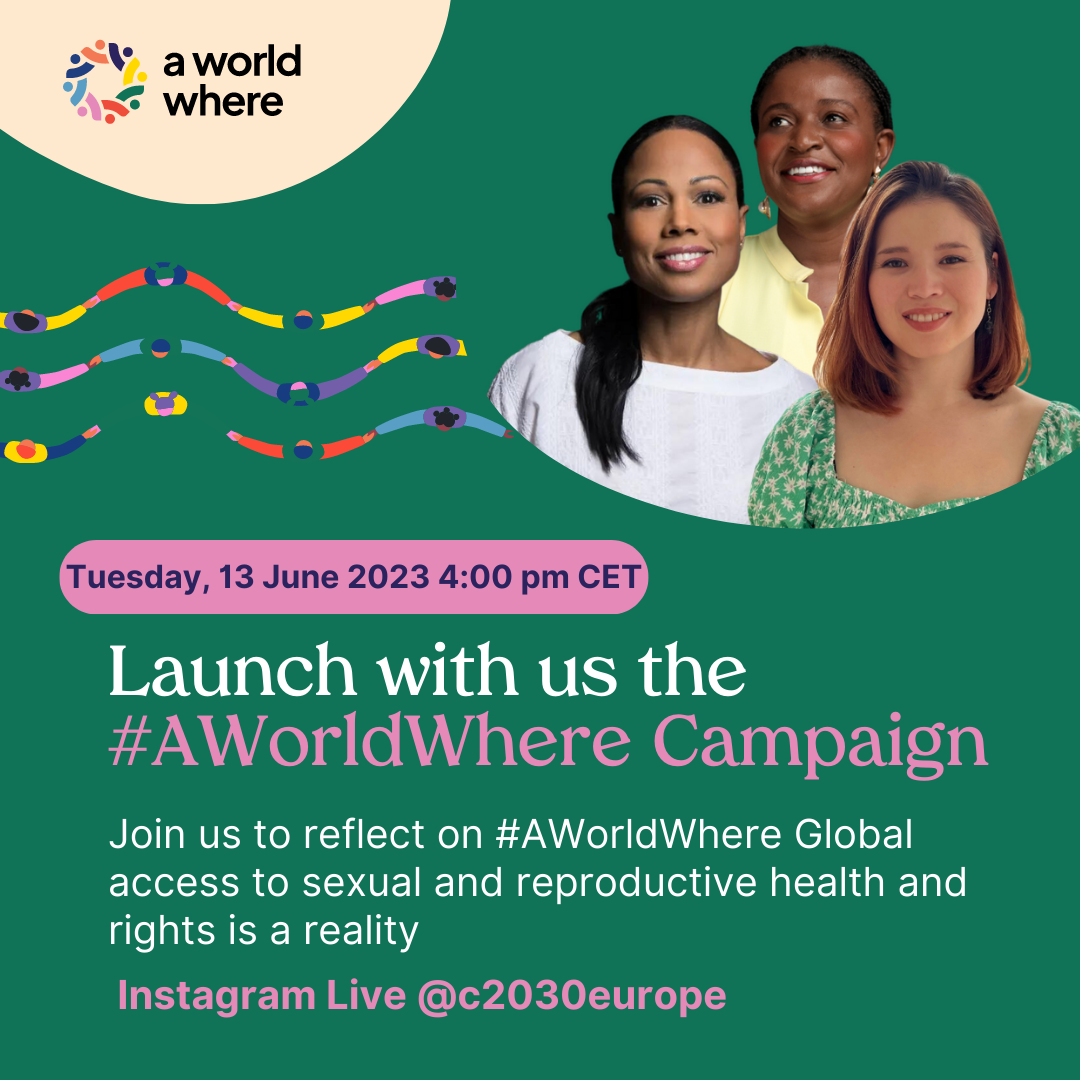Restricted civil society access
Every year country-delegates and civil society representatives from all over the world meet for the Commission on Population and Development (CPD) to follow-up on the implementation of the Programme of Action of the International Conference on Population and Development (ICPD). The Commission is one of the critical spaces for UN Member States and civil society to discuss progress on commitments to sexual and reproductive health and rights (SRHR).
While in-person meetings have not been possible during the Covid-pandemic for the past two years, this year, delegates were finally able to meet in person again at the UN headquarters in New York – at least partly. For the first time, the CPD was conducted in a hybrid model, with the opening and closing ceremonies as well as the negotiations for this year’s Resolution taking place in person, and all other meetings taking place virtually. Four members of the Countdown 2030 Europe network from Denmark, the Netherlands, Norway and Germany, were fortunate to participate in this year’s CPD as part of national government delegations. We were some of the few civil society representatives present, shining a light on the very limited opportunities for civil society to attend this year’s Commission. This is a worrying trend, given the ICPD’s strong focus on including civil society in the implementation, monitoring and review of the Programme of Action. Unfortunately, access for civil society to key UN processes, such as the CPD, has only worsened during the Covid-19 pandemic, as many NGOs do not have the means or access, especially at a point in time where the pandemic still hinders international travel. Although speaking slots are given for virtual participation, real-time advocacy and hallway discussions can better be followed when present in person. We will continue to advocate for civic space to be expanded during the CPD in order for more civil society organizations to participate meaningfully and to receive timely and accesible information going forward.
No inclusive economic growth without SRHR
This year’s 55th session of the CPD considered the priority theme ‘population, and sustainable development, in particular sustained and inclusive economic growth.’ Though not obvious at first sight, this year’s priority theme is clearly linked to sexual and reproductive health and rights (SRHR) and achieving gender equality. Bodily autonomy is a necessary precondition for women’s and girls’ economic empowerment and thereby for inclusive economies and growth. So when UN Member States discuss ways to foster sustainable development and inclusive economic growth, they must ensure women’s, girls’ and young people’s needs for SRHR services, comprehensive sexuality education (CSE) and the prevention and elimination of harmful practices and violence is high on their agenda.
Progressive civil society organizations from all over the world, including Countdown 2030 Europe members, called on UN Member States to ensure SRHR is firmly linked to this year’s topic at CPD. Countdown worked closely with the International Planned Parenthood Federation (IPPF) to advance key priorities, such as SRHR, education, unpaid care work, sexual and gender-based violence, human rights and intersectionality at the CPD. Many Member States stressed their commitment to the ICPD Programme of Action in New York and highlighted the need to link inclusive economic growth with SRHR. In a joint statement, Mexico spoke on behalf of 55 states of the Nexus Initiative and reminded the Commission that “sustained and inclusive economic growth can only be achieved when societies respect, protect and fulfill all women and girls’ rights, particularly their sexual and reproductive health and rights”.
Adoption of the Resolution
We welcome this year’s adopted Resolution which reiterates the importance of CPD’s mandate as the UN fora which is responsible for monitoring and reviewing progress in terms of the ICPD Programme of Action. The adoption of this year’s Resolution reflects Member States’ political support for the Commission and includes critical priorities, such as the unpaid care economy and education as key to advancing inclusive economic growth. References to SRHR have also been maintained and broadened and the Resolution includes important references to human rights. However, this year’s negotiations were fraught with many expected political battlegrounds that have historically dominated the CPD. Concepts such as ‘multiple and intersecting forms of discrimination’ were disputed by a few Member States, despite this formulation being agreed intergovernmental language that enjoys broad based consensual support across regions and many UN fora. Despite this and regrettably, the final text that was adopted omitted this critical reference which is important in terms of implementation and substance when ensuring that the most marginalized communities are included in efforts to advance inclusive economic growth.
Looking towards next year – “Population, education and sustainable development”
The special theme for the fifty-sixth session of the Commission, in 2023, will be “Population, education and sustainable development”. An integral part of education is educating girls, adolescents and young people about sexuality and bodily autonomy. Comprehensive sexuality education is essential for the health and well-being of young people, as it is an effective tool in equipping girls, adolescents and young people with knowledge about their rights, consent, health literacy and healthy and safe relationships. Next year’s topic provides an important opportunity to put comprehensive sexuality education (CSE) on the multilateral agenda and to make gains that reflect the centrality of CSE in achieving sustainable development, gender equality and advancing the rights and empowerment of all women and girls.
By Preethi Sundaram (DFPA), Evi van den Dungen (Rutgers), Kristine Bjartnes (Sex og Politikk), Alisa Kaps (DSW)
Illustration by David Espinosa for IPPF x Fine Acts



